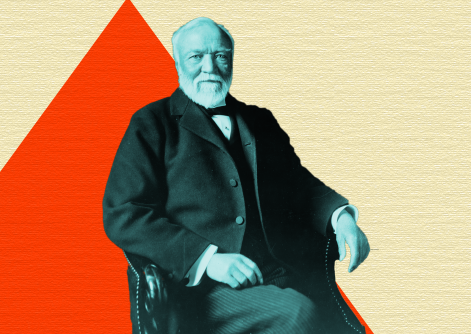Not that there’s anything wrong, necessarily, with such folks. But their credentials are no guarantee of wisdom, decency, or a spirit of civic engagement. In fact, many Americans with precisely those credentials lack the sagacity and charity that cement civil society. I think, for example, of the kind of technocrat who contributes little of his own time and money to good works but is always urging others, especially government, to spend other people’s money on his pet projects, all the while reveling in his superior expertise and concern for the nation – and wondering why he hasn’t received even more of the publicity and money that are his due.
No, the sort of person who really strengthens our civic sinews is likely to be humbler, less stuffed with book learning, and more focused on the flesh-and-blood neighbors he meets, rather than the social statistics he reads about. Bill Kauffman gave us an example recently in his friend Dennis Bowler, “St. Dennis of the Bleachers,” who was endlessly kind to his fellow fans of the Batavia Muckdogs, worked hard all his life in numerous jobs, and loved to be a substitute teacher. “No kid who ever had Mr. Bowler as a sub forgot him,” Kauffman concludes in his memoir of his irrepressible friend.
Robert Royal tells a similar story of his Uncle Nello, who “barely made it out of high school before he had to go to work” but lived a life of “heroic charity.”
Nello did fairly well in life, as materialists keep score, rising from “unashamed, humble entrepreneurship” as a door-to-door salesman to become the owner of numerous rental properties, but he’s best remembered for his career in local politics, the kind of hometown mutual engagement that Alexis de Tocqueville thought is key to America’s flourishing. As Tocqueville put it, vigorous local political institutions are needed to maintain a democratic republic because they "impart to the people a taste for freedom and the art of being free."
The judicial branch of the technocratic class spurred Nello into the public square when they took prayer out of schools. This bit of juridical self-righteousness stepping on local laws upset Nello, a first-generation American who “acted in public forums with the confidence of someone whose family came over on the Mayflower.” For defending the views of his fellow ordinary citizens, Nello was re-elected to the town council for nearly half a century. He was most famous for the town’s fight to defend its Christmas crèche. After much wrangling, the judges decreed the crèche could appear on the town green only if someone remained with it at all times.
The solons presumably thought their bizarre decision would effectively squash the Christmas display without their having to tell the citizenry flatly, “we will not let you have your crèche.” But they didn’t count on Nello. “He put up the crèche with his own money and sat by it in his van for days in the cold well into his eighties and nineties” – a powerful symbol of local views stubbornly resisting being snuffed out by the commands of their betters.
Despite his financial success, Nello lived all his life in the same modest house, full of oddities that fascinated his nephew Royal. And then there’s something more, something Royal didn’t know that only came out at Nello’s funeral. In addition to his public defense of religion, his charities, and the rest of his good works, “he had fitted a cot and heater into a shed in his yard, and even in his last years was bringing homeless people there for the night.”
Royal comments, wryly but truthfully:
I have no doubt this violated multiple zoning laws, housing regulations, and basic federal requirements for professional caregivers. But that says more about how we’ve changed as a society in the way we help the poor than it does about anything else.
Royal observes that most of our elites today have educations and attitudes that reflect “a very narrow slice of humanity. As a nation, we could swap out our entire political and intellectual class with less loss than we could afford to lose sight of people like Nello.”






1 thought on “Saints of civil society”
Comments are closed.